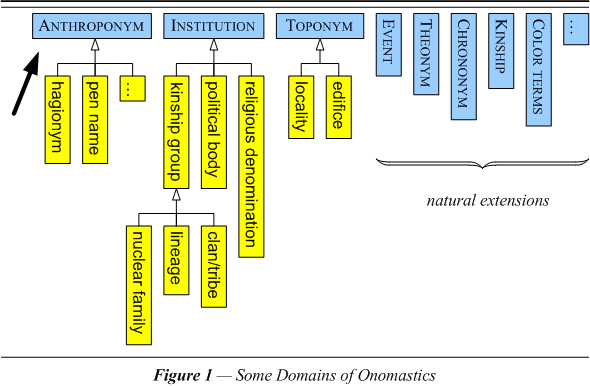
People give special names to certain objects in their culture according to linguistic rules. The study of the way in which this assignment occurs is called onomastics. This study may be extended to many concepts as well. In fact, the principles are meant to be general enough to regulate the analysis of any names of whatever type. The reason for standardization is to improve the effectiveness of the search and retrieval of entities that use names as their principal identifiers.
Figure 1 lists a number of things in our culture that can be given names. Our chief concern here are the personal names, i.e., anthroponyms, that are given to individual people of various social classes. People also give special names to their families, clans, and tribes (ethnic groups). Also of great importance are the names that we give to our social institutions: political and religious bodies, localities and the buildings constructed for housing their business. Extensions to the study of onamastics include the names of various natural, historical, and genealogical events, the names of objects of worship, periods of time, relationships with others. In fact, any field of meaning that the culture has systematized, such as color terms, could become the object of a naming system.

